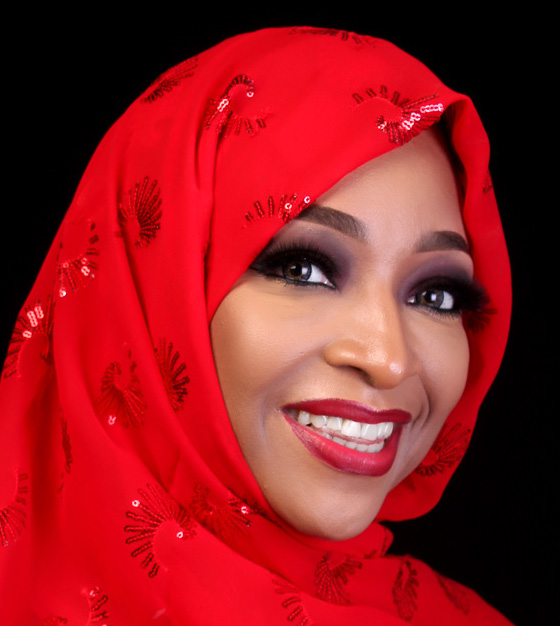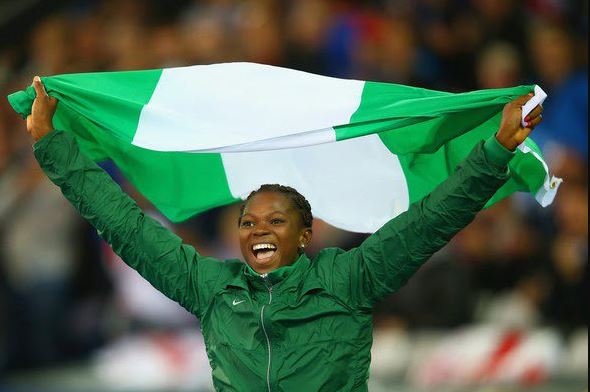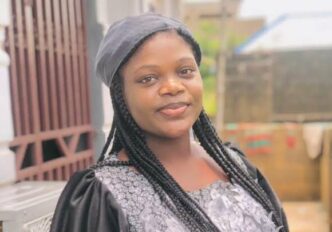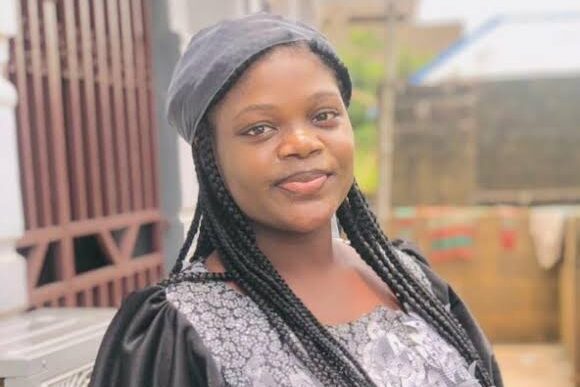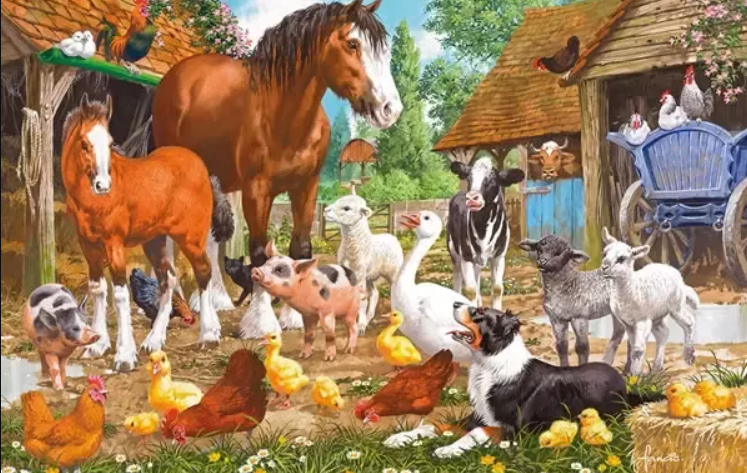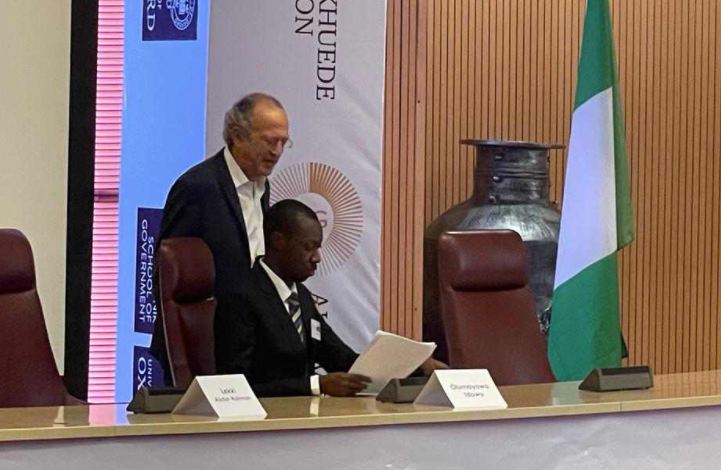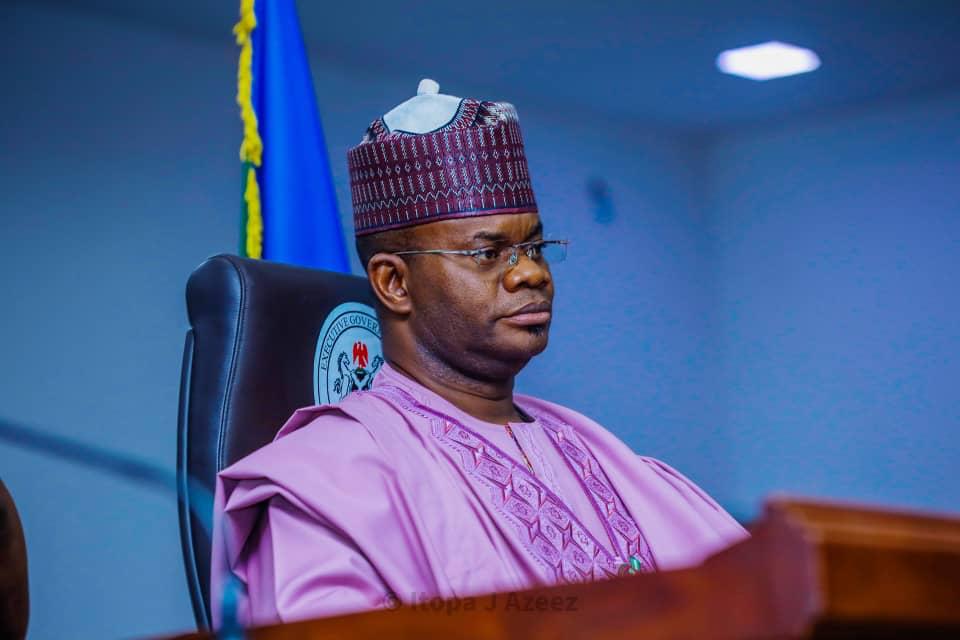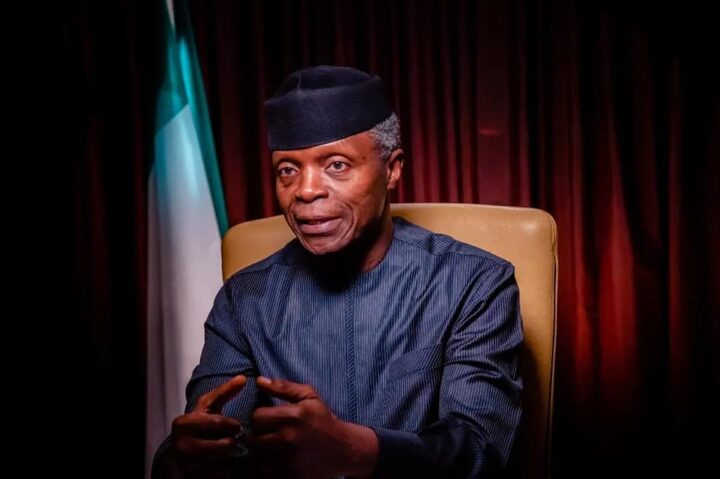Nigeria's Ese Brume wins bronze in women's long jump
In 1972, singer, songwriter, and activist, Helen Reddy, penned the lyrics to a song, ‘I am Woman’. The hit would come to be an anthem synonymous with women’s liberation. In the song, the phrase, “I am Woman… Hear Me Roar” became a phrase of empowerment to oneself, as a woman, and to womanhood as a whole.
‘I am Woman’ is an empowerment song about feeling good about yourself, believing in yourself and most importantly, seeing the strength and importance of community.
The Nigerian community is made up of approximately 101.67 million women and our voices must be heard. Any real development plan devoid of women will remain unachievable and quashing greater opportunities that accord women support will never benefit the country.
Throughout the evolution of our nation, the role of women has been absolute. The name ‘Nigeria’ was coined by a woman called Dame Flora Louise Shaw, Lady Lugard DBE, the wife of Sir Fredrick Lord Lugard. At the beginning of Nigeria, a woman played a pivotal role in the identity of the nation and the sense of oneness which later assumed the character of indivisibility and indissolubility of this geo-legal entity.
Advertisement
History has over time disclosed the exploits of Nigerian women in various areas of our development ranging from peacebuilding, political stability, economic development, to social and human rights advocacy. Names like Queen Amina of Zaria, Hajiya Tinubu, Magaret Ekpo, Fumilayo Ransome-Kuti, Asmau, a princess of the Sokoto Caliphate and more recently, the likes of Kuforiji Olubi, Hajia Gambo Sawaba, Prof. Dora Akanyuli, Prof. Ngozi Okonjo-Iweala, Aruma Ote Amina Ibrahim, Chimamanda Adichie, Grace Alele-Williams, Dr Enyantu Ifene, Mariam Aloma-Muktar, Zainab Bulkachuwa, Monica Dogbam-Mensen, Naja Mohammed readily come to mind.
Inikpi, a princess of Igala Kingdom volunteered to lose her life for the Igalas to be saved from going into extinction and in 1929 women in Aba, the present-day Abia state, protested against the unholy and oppressive tax regime of the colonial administration.
Women have contributed meaningfully to the survival and development of Nigeria but surprisingly, women in Nigeria are not given the chance they deserve in the running of the affairs of this nation. It is common ground that in the first republic, women were not accorded space in the constitutional and political development and it was understood that Nigeria just rose from the ashes of colonial heat that engulfed the country and gender consideration was not an issue. The civil rule of the first republic was violently disrupted by military intervention in 1966 and the military held power until 1999 when they were forced out through collective agitation of Nigerians.
Advertisement
It will be recalled that a woman, Kudirat Abiola, paid the supreme price in our march to democratic governance. Under the military, ‘might was right’ and no one could demand women’s integration into the successive military regimes as a matter of right. When men were being empowered by the military, women were held down and kept out of decisions and policymaking in the affairs of the nation under siege.
During the build-up to return to democracy in the late 1990s women played their limited role from their relegated position to usher in this civil rule but men have refused to recognise women as strong stakeholders who deserve to travel with them in the same boat in the management of the nation’s affairs. Women become beggars when issues of social protection are raised and they can be only relevant at the pleasure of Nigerian men.
Pro-equality bills were presented to the Nigerian parliament to be incorporated into the organic law of the nation in the current constitutional amendment exercise but whole gender bills were initially rejected. Even though, Nigeria’s lower house of parliament has rescinded its decision on three of the bills that it discarded at a constitutional amendment session.
Of the amendments sought by women, one was designed to have granted citizenship to foreign-born husbands of Nigerian women as the constitution already confers automatic citizenship on foreign-born wives of Nigerian men. Another amendment would have given women the right to become indigenes of their husbands’ state after five years of marriage. Another amendment would have given women 35% of legislative seats, as well as 35% of political party leadership. The very act of the core rejections has, unfortunately, pulled down years of advocacy and genuine efforts by female lawmakers, lobbyists and activists.
Advertisement
Nigerians participated in the Fourth World Conference on Women held in Beijing, China from September 4-15, 1995, and the nation adopted the Beijing declaration and platform for action which was recommended to the general assembly of the United Nations at its fiftieth session that was endorsed.
The third declaration reads: “Determined to advance the goals of equality, development and peace for all women everywhere in the interest of all humanity”. The thirteenth declaration provides: “Women’s empowerment and their full participation on the basis of equality in all spheres of society, including participation in the decision-making process and access to power, are fundamental for the achievement of equality, development and peace.”
The eighth declaration provides thus: “The equal rights and inherent human dignity of women and men and other purposes and principles enshrined in the Universal Declaration of Human Rights and other international human rights instruments, in particular, the Convention on the Elimination of All Forms of Discrimination against women and the convention on the Rights of the child, as well as the Declaration on the Elimination of violence against women and the Declaration on the Right to Development”. The fourteenth declaration is explicit: “Women’s rights are human rights”.
The Nigerian nation cannot pretend that it is not aware of the Beijing Declaration. Women in Nigeria are not asking for anything in excess of the Beijing Declaration to which Nigeria is bound. The 38 declarations is a collective adoption and commitment to the implementation of the platform for action by member countries including Nigeria. “We hereby adopt and commit ourselves as governments to implement the following platform for action, ensuring that a gender perspective is reflected in all our policies and programmes. We urge the United Nations system, regional and international institutions and all governmental organizations, with full respect for their autonomy, and all sectors of civil society, in cooperation with Governments, to fully commit themselves and contribute to the implementation of this Platform for Action.”
The Platform for Action is an agenda for women’s empowerment. All over the world, nations are making deliberate efforts to fully integrate women in all spheres of national interest. Nigeria needs to keep up.
Advertisement
Affirmative actions as sought for by Nigerian women are meant to ensure justice by eliminating discrimination and tapping from the rich talent of the womenfolk. Men must understand that women are gifted in various ways and their ability to contribute to nation-building cannot be over-emphasized. Today the amendments sought, while initially avoided may have a second chance with a ‘volte-face’ on parliament’s March 1 decision to reject the proposed bills. The house will now reconsider the bills in a month when it reconvenes for another parliamentary session.
Despite it all, we hope for a better tomorrow when good reasons will be allowed to prevail and justice shall win for women in Nigeria their legitimate entitlements. After all, the constitution of the Federal Republic of Nigeria 1999 (as amended) provides that “no person shall be discriminated against on the basis of the circumstances of his or her birth”.
Advertisement
Women do have a role to play in our national and community development and in the fabric of governance. Hillary Clinton once declared, “There cannot be true democracy unless women’s voices are heard. There cannot be true democracy unless women are given the opportunity to take responsibility for their own lives. There cannot be true democracy unless all citizens are able to participate fully in the lives of their country”. No matter which way we cut it, those with the power to continue subjugating women need to understand that development can never be holistic and sustainable without women.
There is a need to close the gender gaps between men and women in all facets of governance in Nigeria to create a more effective, sustainable and inclusive society, community, economy and governance in the country.
Advertisement
So, as the Nigerian legislature pontificates on whether they will allow women an adequate voice, I lend my voice in urging the 109 members of the senate and 360 members of the house of representatives to affirm all five gender equality bills when it is revisited in the next phase of the constitution alteration exercise.
I urge men to step up in solidarity and remember Nigeria’s 101.67 million female population. I urge men to absorb the words of Helen Reddy’s hit. I urge men to remember the women of substance that helped define Nigeria. I urge men to remember the voices of their daughters. I urge men to remember “Me,’ for… I am WOMAN and I need you to… HEAR ME ROAR!”
Advertisement
Views expressed by contributors are strictly personal and not of TheCable.
